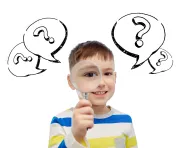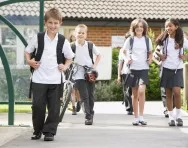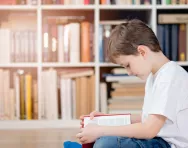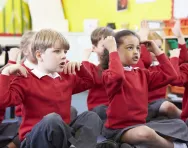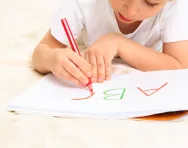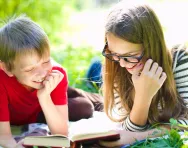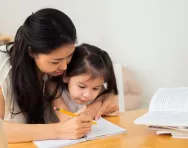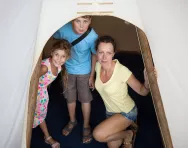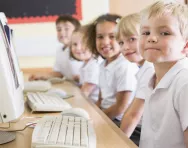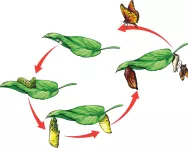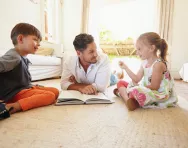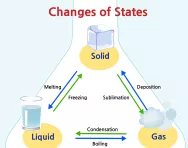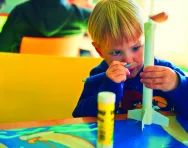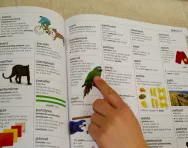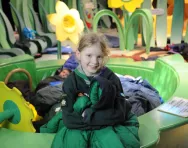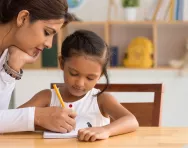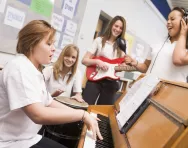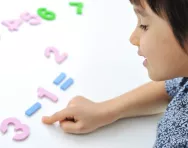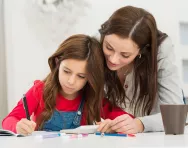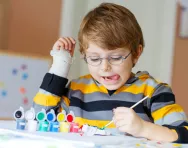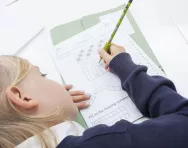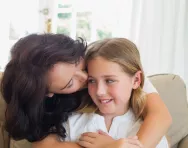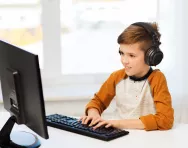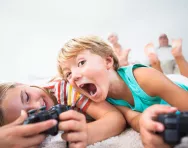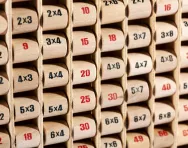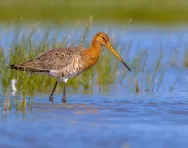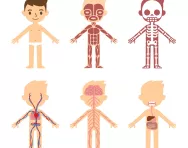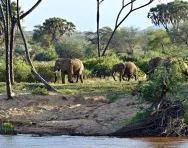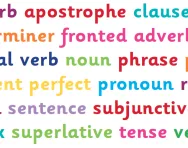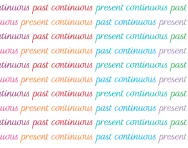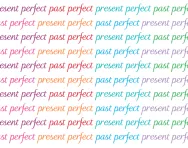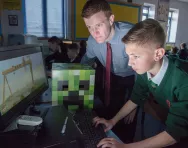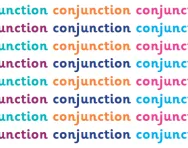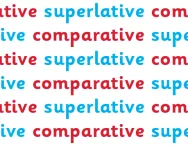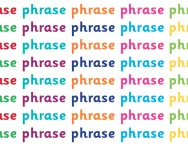6 ways to make science fun for kids
Science may be one of the most hands-on subjects at school, but making it accessible isn’t always easy. We asked the experts how to channel your child's natural curiosity into a life-long interest in the world around us and how it works.
Talking to your child about politics
Every child is a future voter, so it's important that they learn about politics. Lucy Dimbylow takes a look at where to begin.
How to build your child's independence
Do you feel like you’re constantly nagging your child to get things done? Helping them develop their independent streak could help to break the trap.
Expanding your child’s reading tastes
Is your child stuck in a reading rut? Lucy Dimbylow takes a look at how to encourage them to test the water with different styles and genres of fiction and non-fiction.
Best learning songs
Could songs and music help your child learn and remember English, maths and science facts? We pick our favourite learning songs, covering everything from adverbs and angles to onomatopoeia and photosynthesis.
The legalities of home education in the UK
Here’s our plain-English guide to the law surrounding home education in the UK – it’s not as complicated as you might think!
Getting started with home education: your step-by-step guide
Beginning to home educate your child is a big leap into the unknown, so how do you actually get the ball rolling? We explain how the process works in the UK.
Home education: your FAQs answered
Thinking about home educating your child in the UK? We tackle some of the burning questions.
How to write an educational philosophy
An educational philosophy can focus your home-educated child's learning and satisfy the local authority. We explain how to put it together.
The parent's guide to InCAS tests
Many primary-school pupils in Northern Ireland and Scotland are assessed every year using InCAS tests. We explain what’s involved.
What is a life cycle?
All living things have life cycles; animals produce offspring and plants produce seeds which germinate into new plants. Find out what your child learns about life cycles in the primary-school classroom, plus easy ways to support their learning at home.
Improving your child’s listening skills
Listening is a vital skill for your primary-school child, but how can you help to develop it?
What are states of matter?
Matter makes up our physical universe. In primary school children learn about the matter on Earth, which exists in one of three main states: solid, liquid or gas. We explain what your child is taught about states of matter in KS2 science.
Butlin’s Astonishing Family Science Weekend reviewed by parents
Butlin’s new Astonishing Family Science Weekends are designed to give children aged six to 14 a taste of how science works in everyday life. Lucy Dimbylow visited the Bognor Regis resort with her children Tom, 10, and Katie, 5.
Best reference books for children
Reference books and dictionaries offer us information that's accurate, well researched and beautifully presented and are invaluable when you're working on a homework project. From atlases to dictionaries and encyclopedias, we recommend some of the best English, maths, science, history and geography reference books for primary-school children.
The UK’s best museum sleepovers for kids
What could be better than spending a day with your child at one of the UK’s best family museums? Well, how about spending the night there...
What is flexi-schooling?
Tempted by the idea of home educating but not sure you could do it full-time? Flexi-schooling could be the perfect compromise, writes Elisabeth Attwood.
Single-sex schools: the pros and cons
Would you consider a girls' school or boys' school for your child at primary or secondary level? We take a look at single-sex education and whether it’s right for your child.
The laws on home education in Wales
As home education surges in popularity in Wales, we explain the facts you need to know if you're considering home-educating your child.
Home education laws in Scotland
Are you a parent in Scotland considering home-educating your child? We explain the legal process you'll need to follow.
Home education and the law in Northern Ireland
In recent years there has been controversy around the right to home educate in Northern Ireland. We explain what the law says.
Home education in England: the facts
What does the English law say about your right to home educate your child? We explain the legalities and practicalities of getting started with home education in England.
How to help your child with anxiety
Anxiety is on the rise amongst primary school children, but, with the right support, they can overcome it.
Positive screen time for children
Despairing of how much time your child spends glued to their laptop, tablet or phone? Here's how to help them get the most out of their screen time
Museums reviewed by parents: Dickens Museum
A brilliant way to make KS2 learning about life in Victorian times come to life for your primary-school child, the London home where Charles Dickens lived for two years is no Bleak House, rather an Old Curiosity Shop of memorabilia that all the family will love.
33 things that always happen on after-school playdates
They're meant to be fun, but they can be anything but – especially if you're the host parent!
Best times tables learning tools
"Times tables practice"... words guaranteed to make any primary-school parent's heart sink. Make multiplication tables learning a little less painful and a little more effective with our pick of the best games, apps, songs and tools on the market.
Learning about plants in primary school
From the parts of a plant to the seed cycle, water transportation and photosynthesis, children learn lots about the living things around us in primary school. Find out what is taught when in the primary classroom in our parents' guide.
Learning about animals in primary school
Carnivores, herbivores and omnivores; vertebrates and invertebrates. Your child will learn about animals and their classification in primary school. We explain what they will find out about amphibians, birds, fish, mammals and reptiles.
Learning about the body in primary school
At primary school children learn about the senses, the human skeleton, teeth and their function, the digestive system, puberty, the circulatory system and more. Find out what they'll be discussing in the classroom when and how you can support their learning at home.
What is a habitat?
Children are introduced to all kinds of habitats in primary school, from arid deserts to lush rainforests and vast oceans. Find out what your child will learn in primary-school science and how you can support your child's learning at home.
Primary grammar glossary for parents
Do you know the difference between the subject and the subjunctive? Can you identify a relative clause or find a phrase? From active voice to verb tense, TheSchoolRun's primary-school grammar glossary offers a complete guide to all the grammatical concepts children are taught in EYFS, KS1 and KS2 English. As well as basic definitions we offer more detailed explanations, teachers' tips and examples for each grammar term.
What is a Steiner school?
Steiner schools place an emphasis on preserving childhood, music and arts with an internationally recognised curriculum, but what actually takes place in the classroom?
What are the present continuous and the past continuous?
We use the present continuous and past continuous verb tenses when talking or writing about actions that continue or continued over a period of time In our parents' guide to the continuous or progressive verb tenses we explain what children are taught in the primary-school classroom.
What are the present perfect and the past perfect?
We use the present perfect and past perfect verb tenses when talking or writing about actions that are completed by the present or by a specific moment in the past or future. In our parents' guide to the perfect verb tenses we explain what children are taught in the primary-school classroom as part of the grammar curriculum.
The best science days out for families
Looking for a great day out that's educational, too? Inspire your budding scientist with a trip to one of these brilliant, hands-on UK science centres.
Learning through Minecraft
You may think it’s just another video game – albeit a particularly addictive one – but Minecraft could have educational benefits too…
What is a conjunction?
Conjunctions are joining words that link different parts of sentences. In our parents' guide we explain how children learn about conjunctions as part of the primary-school grammar curriculum.
What are comparatives and superlatives?
We use the comparative and superlative forms of adjectives and adverbs to compare things, people, actions and states in our writing. Find out how your child is introduced to this concept, how they will learn to form the comparative and superlative and how they will practise using them in the primary-school classroom.
What is a phrase?
A phrase is a small group of words within a clause. We explain how children are taught about clauses as part of the primary-school grammar curriculum and what you need to know to support their learning at home.
